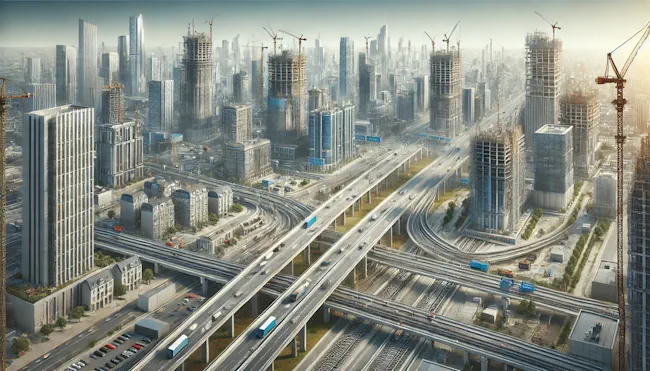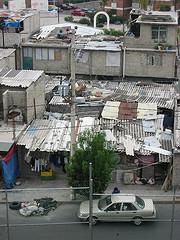
Mangalore's property scene shifts dramatically with high-rise towers like Bhandary Vertica and Yamuna Sky City leading the charge. Driven by city growth, more people, better infrastructure such as airport upgrades, and new lifestyle demands, these projects redefine luxury living in the coastal city.

Senior executive Manju Yagnik from Nahar Group highlights the growing scarcity of Mumbai homes under Rs 1 crore without subsidies. Factors like rising construction costs, high demand, and rapid urbanization are driving up prices, making affordable housing a major issue for potential buyers in India's financial capital.

India's real estate sector faces sustainability challenges, yet companies like DLF and Bharti Real Estate are pioneering eco-friendly initiatives and practices to combat them.

India's real estate market soared in 2023, exceeding expectations. Homeownership is favored over renting. Experts predict promising 2024 due to resilience and affordability.

Foreign investments in Indian real estate surged 20% to $3.6 billion in 2023, driven by strong economic growth and rapid urbanization. APAC countries, including Singapore and South Korea, significantly increased their investments, showing confidence in India's diverse real estate opportunities.

Delhi's skyline transformation is fueled by luxury high-rise apartments, driven by renowned developers responding to rising demand for modern amenities and increasing population density.

India's ultra-rich are investing more in residential real estate, with 32% of their portfolio allocated to this sector, showing a shift in preferences and a growing appetite for luxury homes.

The Indian real estate market is projected to reach $1.3 trillion by FY 2034, significantly impacting the economy, driven by residential demand and commercial development.

China's Evergrande faces liquidation, impacting the global market, while India's real estate remains resilient due to government initiatives and RERA regulations.

The Indian real estate market, particularly in Bengaluru, is transforming with a focus on integrated townships and fractional ownership, enhancing investor confidence and opportunities.

India ranks 14th in Knight Frank's global house price index, with a 5.9% annual price rise due to strong economic fundamentals despite rising loan rates and inflation.

This article discusses the decline in forest land in India since 1960-61 due to agriculture, industrialization, and urbanization. It highlights land utilization factors and the distribution of land categories.

Knight Frank reports India faces severe housing shortages, exacerbated by funding issues in construction. Real Estate Investment Trusts (REITs) offer a viable solution.

Demand for luxury homes in India is surging, driven by NRIs, evolving lifestyles, and festive offers. Major cities see high demand for homes exceeding ₹20 crore, prompting developers to launch luxury projects.

Gurgaon farmers allege land grabbing by real estate developers with the consent of the Authority. They claim that government urbanization plans are meant to benefit developers, not farmers.

The Indian government is contemplating permitting increased vertical growth in cities by granting additional Floor Space Index (FSI) to curb rising real estate prices and fund urban infrastructure upgrades.

Urbanization is crucial for India's growth, but infrastructure development lags behind the rapid rise in urban population and real estate stock, necessitating urgent investment.

The urban development ministry calls for a review of the proposed service tax on housing projects, amidst concerns over its impact on the struggling real estate sector.

Mumbai anticipates highest residential demand, while Bangalore leads in office and retail space. Pune shows strong retail growth potential.

Bangalore's rental market is booming due to increased urbanization and IT sector growth. Professionals and students are driving demand, while high property prices make renting more affordable. Real estate consultants assist newcomers in finding suitable housing.

Local property investors in the West Midlands are exploring opportunities in India's emerging real estate market as UK prices decline amid the credit crunch.